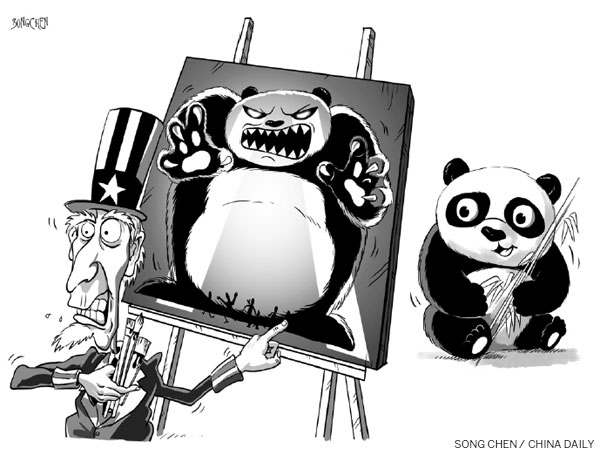
The Western media is again full of articles claiming a "China threat". This time the articles uncritically cite a Pentagon report that says China is engaged in "unprecedented" military development and is under-reporting the size of its military budget.
Chinas' military budget is about one-third the reported military budget of the United States. But what is virtually never mentioned is that US military and security-related costs may themselves be grossly under-reported. The US War Resistors League estimates that when other related costs are added, military costs jump up from the officially claimed 25 percent of annual Federal expenditures to 49 percent.
What's more, China's military spending must be seen against the backdrop of US foreign policy - policy which seeks to gain military, political, and economic control of the Eurasian land mass, on which China and Russia occupy central positions.
Two doctrines embodied in US foreign policy attest to this policy.
The first is the so-called Wolfowitz Doctrine, which argues that the US must never allow another superpower to emerge.
Former US under secretary of defense for policy Paul Wolfowitz stated in the initial version of the Defense Planning Guidance for the 1994-99 fiscal years: "Our first objective is to prevent the re-emergence of a new rival, either on the territory of the former Soviet Union or elsewhere, that poses a threat on the order of that posed formerly by the Soviet Union. This is a dominant consideration underlying the new regional defense strategy and requires that we endeavor to prevent any hostile power from dominating a region whose resources would, under consolidated control, be sufficient to generate global power."
The document containing this statement and similar notions was changed for public consumption after the original provoked an outcry when it was leaked to the press.
The second doctrine is that US dominance depends on control of the Eurasian landmass. This doctrine has been heavily promoted by former US national security advisor Zbigniew Brzezinski, who wrote in The Grand Chessboard: American Primacy and its Geostrategic Imperatives: "For America, the chief geopolitical prize is Eurasia. Eurasia is the globe's largest continent and is geopolitically axial. A power that dominates Eurasia would control two of the worlds' three most advanced and economically productive regions. Eurasia is thus the chessboard on which the struggle for global primacy continues to be played."
To that end, the US military is being expanded in an attempt to encircle both China and Russia. The US-led NATO military alliance has progressively squeezed Russia's' strategic space by enlisting one former Russian aligned state in Eastern Europe after another. Now, with a US-supported coup-imposed government in power in Ukraine , there is open talk of it being incorporated in NATO, a country right on Russia's border.